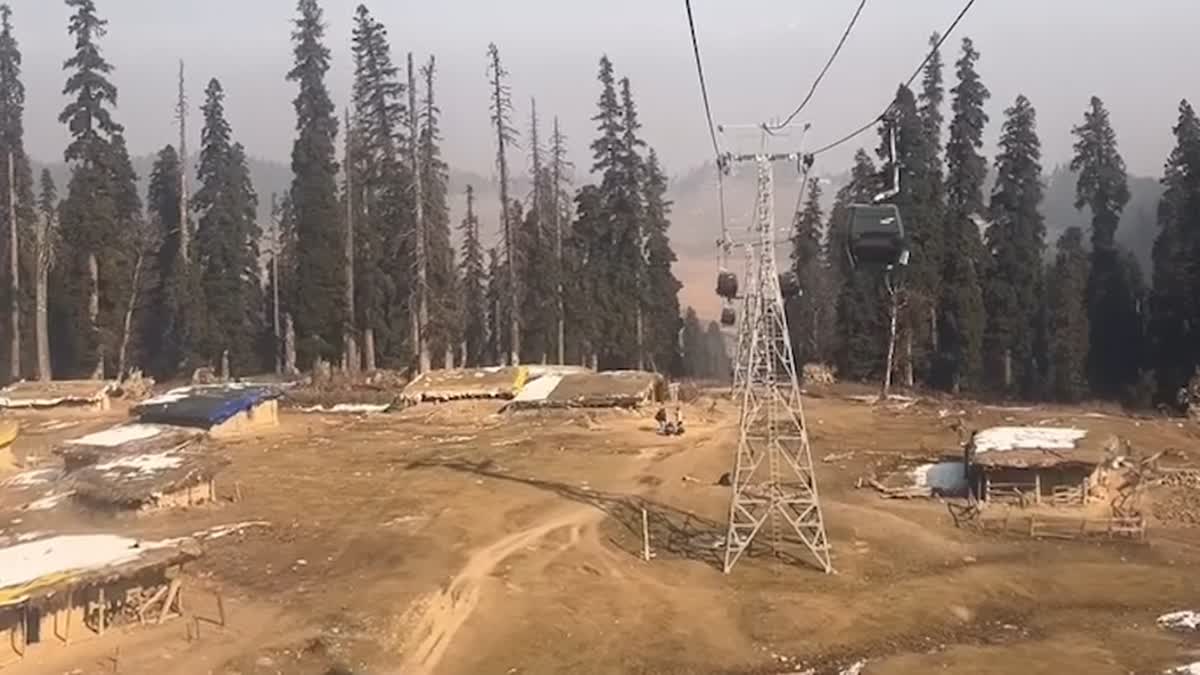SRINAGAR (JAMMU AND KASHMIR): In a major concern for the Kashmir tourism industry and the farming sector, the scenic Valley, renowned for its captivating winter snow and world-class skiing resort Gulmarg, is currently undergoing an unusually dry winter season leaving stakeholders high and dry. The popular tourist spot of Gulmarg, celebrated for its snow-covered slopes, stands bare as the anticipated snowfall remains elusive.
The local Meteorological experts attribute this anomaly to the climatic phenomenon known as El Nino, which refers to the warming of the ocean surface causing a significant 79 per cent rainfall deficit throughout December, last year. El Nino, characterized by the warming of sea surface temperatures in the central and eastern Pacific Ocean, has widespread effects on global weather patterns, including precipitation in Kashmir, experts said.
The director of the Meteorological Centre Srinagar, Mukhtar Ahmad, said that December and the first week of January have been exceptionally dry, and there is no major precipitation expected until at least January 16. This year's deviation from the pattern of early snowfall, observed over the past three to four years, is particularly noteworthy, Mukhtar said.
He said that El Nino's influence has been persistent since November and is expected to continue in February, disrupting the usual climatic rhythms of the valley. El Nino alters the Pacific jet stream, shifting it southward and extending it further east, resulting in wetter conditions in the Southern US and drier, warmer conditions in the North.
In Southeast Asia, it typically leads to drier-than-average rainfall conditions and warmer temperatures from December to February. In Kashmir, this translates to prolonged dry spells, milder winters, and reduced snowfall, Mukhtar explained. The weather forecast offers little hope, with dry weather conditions expected to persist until at least January 12, according to Mukhtar.
Experts warn of potential future challenges, indicating that the valley may face more frequent and extended droughts due to the evident impact of climate change. Local agriculture is already feeling the repercussions, with saffron farmers in Kashmir bearing the brunt of shifting weather patterns. The prolonged dry conditions have adversely affected their crops, underscoring the vulnerability of traditional farming practices to climatic disruptions.
As El Nino continues to exert its influence, the Kashmir Valley braces for potential long-term implications on its climate and agriculture. Meanwhile, tourists too are looking disappointed because Kashmir's winter wonderland is without snow.



